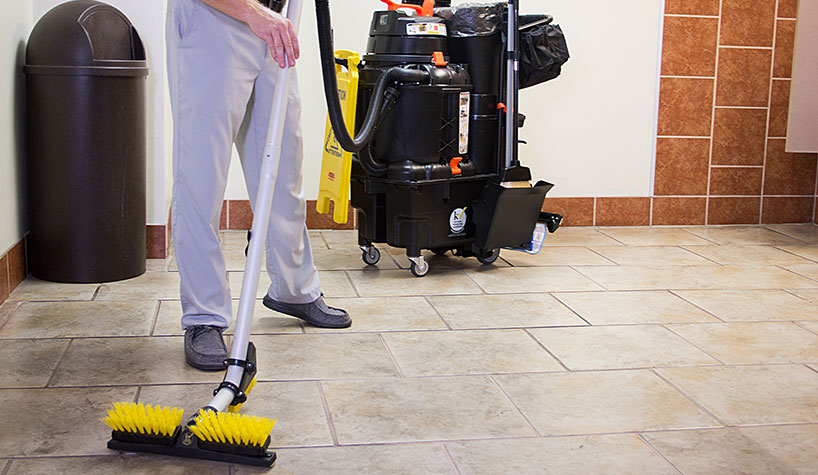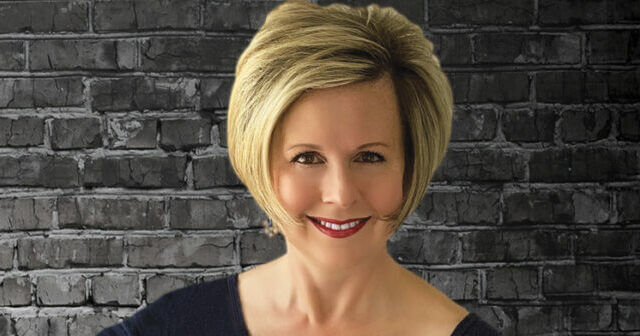HAMILTON, OH—When the restrictions related to the COVID-19 pandemic start to ease, cleanliness and hygiene will be top of mind for hotels and the guests who stay in them.
Hotels will need to make sure that every surface on the premises is as clean as possible, including the floors. “When it comes to appearance, hotel operators are very familiar with the importance of floors,” said Terry Schawe, technical director, Kaivac Cleaning Systems. “Hotel properties often invest large sums of money in their lobby floors. They know it is the first thing a guest sees. Clean and impressive, it leaves a very positive first impression.”
While a floor may look clean and shiny, it may also be a storehouse of germs. “This is because our shoe bottoms become covered with soils and pathogens as we walk on city streets, in parking garages, plazas and walkways,” he said. “While the entry mats installed at most hotel entries will help remove some larger soils and moisture, what hotel operators need to know is that they were never designed to remove tiny particulates. Very often, harmful pathogens are present in these small particulates.”
He continued, “We may believe we are safe from germs and pathogens collected on floors. After all, how often do we touch the floor? Well, according to Mark Warner, education manager for The International Sanitary and Supply Association’s (ISSA) Cleaning Management Institute, we have as many as 50 direct and indirect contacts with floors every day. If pathogens are present [on the floor], there is a good chance they can be transferred to our hands, eyes, nose and mouth.”
Schawe said that hard surface floors should not be mopped for several reasons, including the spread of pathogens.
Another problem is that the finish they apply to the floors starts losing its shine fairly rapidly. “When this happens, housekeepers must apply thin coats of floor finish to restore the shine,” he said. “This also means the floor must be blocked off to foot traffic, often for several hours. But why is the finish slowly fading? It’s not foot traffic. It’s because many housekeepers still maintain floor areas using automatic scrubbers. As the name implies, an automatic scrubber scrubs the floor to remove soils. But in so doing, it also removes thin layers of the floor’s finish. As this happens, the shine diminishes.”
To avoid this, Schawe suggests floor cleaning alternatives that use autovacs. “These machines produce the same cleaning results and, in many cases, more effective results than auto scrubbers, but do not eat into a floor’s finish like a scrubber,” he said. “Instead, as the machine is walked over the floor, an autovac has a microfiber pad at the rear of the machine that agitates the floor enough to loosen and remove soils. From here, just as with an auto scrubber, the soils and moisture are vacuumed up by the machine.”
When it comes to restroom floors, with tile and grout, the way they are cleaned is a concern. “In most cases, these floors are mopped,” he said. “As referenced earlier, mopping floors spread soils and germs. As to alternatives, we may be limited because many hotel public restrooms are too small for a traditional auto scrubber.”
An autovac can work, but what might be a better option is to consider a system that cleans not only floors, but also restroom fixtures, counters, walls, partitions and other surfaces. “One example is a no-touch cleaning system,” said Schawe. “ISSA, the worldwide cleaning association, refers to these machines as spray-and-vac cleaning systems. They first found their niche when custodians started using them to clean school restrooms. But they are now used to clean restrooms in all types of public facilities, including airports, hotels and convention centers.”
The machine applies cleaning solution to all areas to be cleaned. “The same areas are then gently but effectively pressure-rinsed,” he said. “In the final step, the machine is used to vacuum up moisture and soils. The only remaining cleaning tasks may include ‘touch-up’ cleaning, such as wiping mirrors and fixtures to remove moisture. ISSA reports no-touch systems reduce cleaning time by at least one-third, which is another benefit.”

